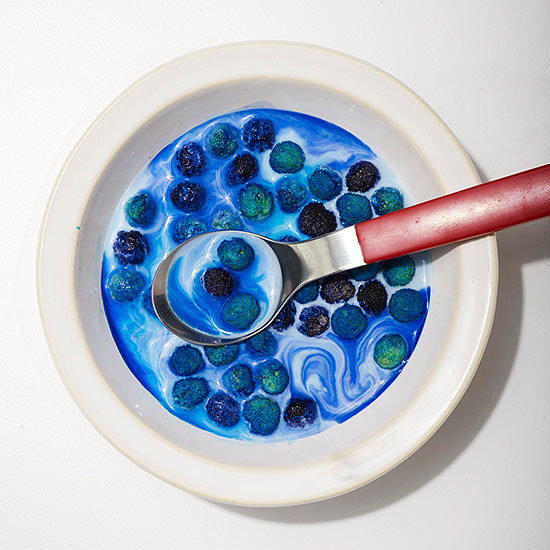
You might not think twice about buying a bag of colorful candy for Easter or a jar of rainbow-hued cupcake sprinkles. But what if the package carried this label: "The synthetic dyes in this food might affect your child's behavior"? That's what one California lawmaker hopes to see on foods and drinks made with synthetic food dye.
Foods and drinks colored with synthetic dyes (the kind you see on ingredient lists with names like Red 40 and Yellow 5) already carry this warning label in the European Union: "[Name of dye] may have an adverse effect on activity and attention in children." The label requirement happened in 2010, after research findings were reported showing that some kids may be sensitive to dyes—specifically, that the dyes may worsen inattention and hyperactivity. One research analysis concluded that about 8 percent of children with ADHD may have symptoms related to synthetic food dyes (that's more than half a million kids in the U.S.!).
The California bill, proposed by state senator Bob Wieckowski, would require dyed products to carry similar warning labels, such as "Dyes in this food may trigger hyperactivity and other behavioral problems in some children," or "Children's behavior might be impaired by the dyes in this food." (This would only affect foods and drinks sold in California, not elsewhere in the country.) "It's important for parents to have this information as they seek ways to help their children who suffer from behavioral problems," says the lawmaker on his website. "Raising awareness through warning labels will educate parents about the adverse effects of food dye and empower them to make better-informed choices when they are shopping. These labels are in use in the European Union and Great Britain, and California parents deserve to be aware of the effects too."
Synthetic food dyes tint all kinds of products these days, including ones that aren't colorful, like brown cereal and white marshmallows. They're found in places you might expect, such as colorful cereal and candy, and others you might not, like pickles and yellow cake mix.
Though researchers have been questioning the safety of food dyes since the 1970s, the FDA says they are safe. In 2011, the agency convened a panel to examine the issue and voted against using warning labels in the U.S., saying there wasn't enough evidence to justify them.
Still, more consumers seem to be wary of synthetic dyes—and companies are responding. Companies like General Mills and Panera are reducing or eliminating synthetic dyes from their products in favor of using natural colors made from plants, such as beet juice for pink and turmeric for yellow. No doubt a requirement for warning labels would encourage more companies to make the switch too. (If you're looking to avoid synthetic dyes, here are 15 products—from cake sprinkles to food coloring—that use natural colors.)
Do YOU avoid synthetic dyes? Do you think dyed foods should carry a warning label?
Sally Kuzemchak, MS, RD, is a registered dietitian, educator, and mom of two who blogs at Real Mom Nutrition. She is the author of The Snacktivist's Handbook: How to Change the Junk Food Snack Culture at School, in Sports, and at Camp—and Raise Healthier Snackers at Home. She also collaborated with Cooking Light on Dinnertime Survival Guide, a cookbook for busy families. You can follow her on Facebook, Pinterest, and Instagram. In her spare time, she loads and unloads the dishwasher. Then loads it again.
